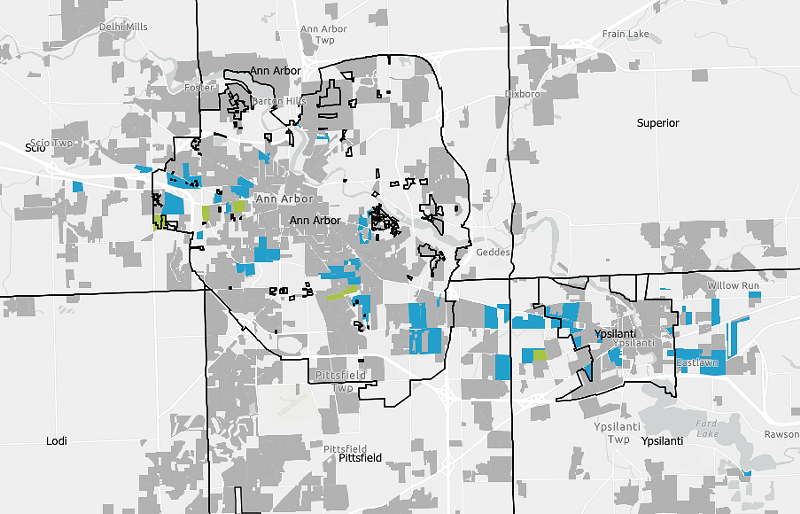121 neighborhoods in Washtenaw County still have racially restrictive covenants. This one did something about it.

Audio By Carbonatix
[
{
"name": "GPT - Leaderboard - Inline - Content",
"component": "35519556",
"insertPoint": "5th",
"startingPoint": "3",
"requiredCountToDisplay": "3",
"maxInsertions": 100,
"adList": [
{
"adPreset": "LeaderboardInline"
}
]
}
]

Justice Indeed
More than 120 neighborhoods in Washtenaw County still have racially restrictive covenants on the books.
Like many neighborhoods of its time, an Ann Arbor subdivision in the late 1940s enforced a racially restrictive covenant that prohibited “any person other than the Caucasian race” from using or occupying a house except for “domestic servants.”
Until recently, that 1947 covenant, while no longer enforced, was still on the books in the Hannah Subdivision, serving as a painful and ugly reminder of the racist attitudes that barred Black people from owning or renting a home in neighborhoods across the country in the mid-20th century.
Homeowners in the subdivision recently repealed and replaced the covenant and delivered the amendment to the Washtenaw County Register of Deeds.
“Even though racially restrictive covenants are illegal and cannot be enforced, it is important to take a stand,” Patricia Stepp, a resident of the Hannah Subdivision, said in a statement Thursday. “These covenants need to be acknowledged and addressed in order for us to heal.”
In Washtenaw County alone, 121 neighborhoods still have racially restrictive covenants. Across the country and in metro Detroit, many neighborhoods also have racial restrictive covenants that remain on the books.
It’s believed that the Hannah neighborhood is the first in Michigan to repeal the covenant and replace it with language barring discrimination.
The Civil Rights Litigation Initiative at the University of Michigan Law School (CRLI) and a community group called Justice InDeed joined together to help residents of the neighborhood.
Although the covenants are no longer enforceable, CRLI says they are still harmful and discourage people of color from living in neighborhoods that have one.
Repealing the covenant required more than half of the Hannah homeowners to sign the amendment. CRLI and Justice Indeed had no trouble meeting that threshold. They collected signatures from more than 85% of the homeowners in one weekend. No one opposed the amendment.
“Today, a neighborhood came together and reckoned with Ann Arbor’s history of segregation and racial discrimination,” Alexandria Nichols, a student attorney with the CRLI, said. “Not only did homeowners repeal a hateful whites-only restriction on their property, but they replaced it with a provision celebrating inclusiveness and banning discrimination.”
Stay connected with Detroit Metro Times. Subscribe to our newsletters, and follow us on Google News, Apple News, Twitter, Facebook, Instagram, or Reddit.






